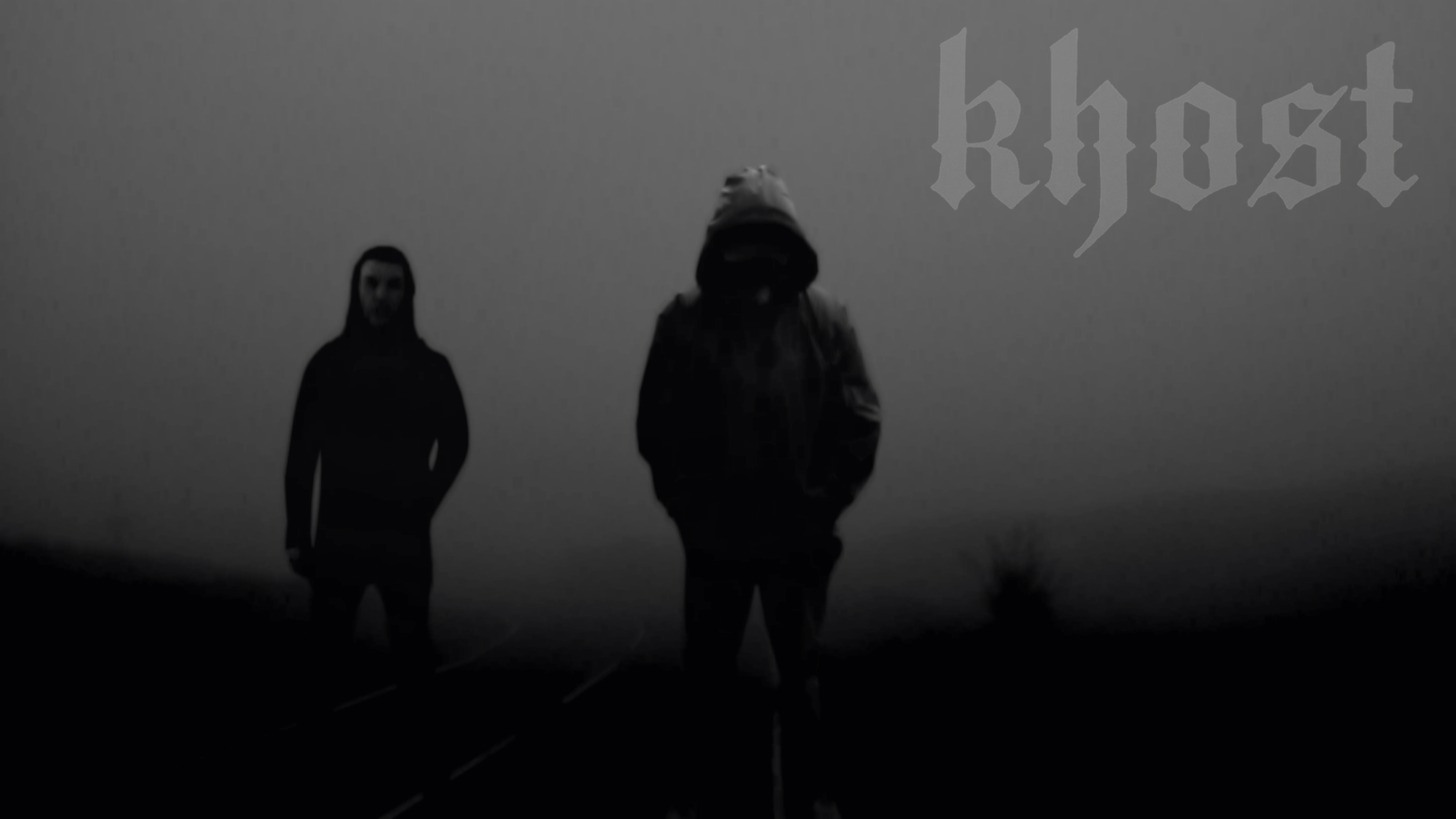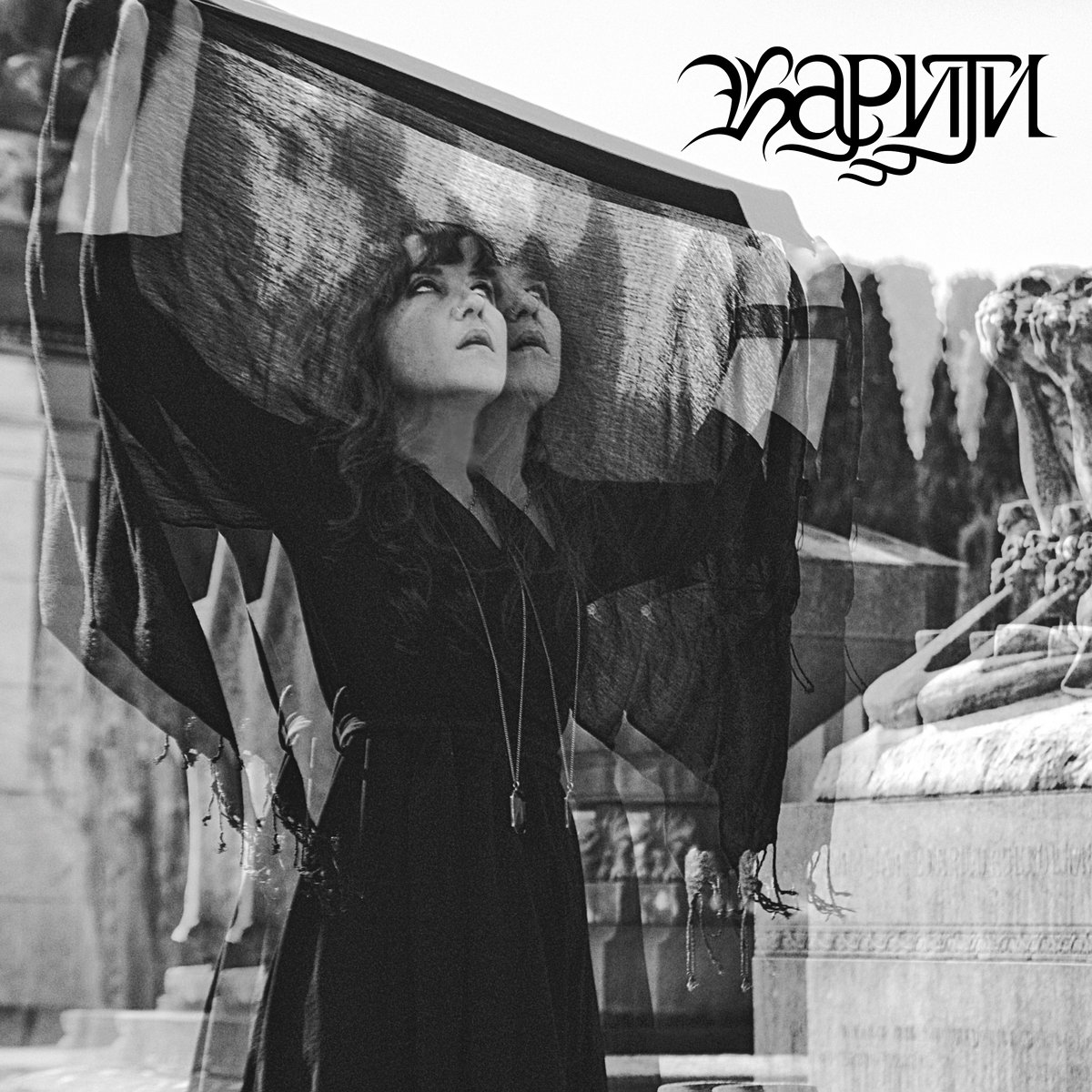Worship khost – Metallic Pummeling Rituals
When I started to figure out how to better handle this site and submissions, part of that process was creating a feature called “Worship,” which is part interview, but also more. I also consider a particular band’s most recent release, which is going to be something I score at the highest tier of the Deaf Sparrow order. Thus, this means such bands have achieved a perfect score (5/5). So we must learn, we must praise, and we must worship them. Today we’re checking out khost, whose recent release, Governance, is an overwhelming surge of dark industrial, doom, and drone, lulling the listener into slow, painful reflection. I even released it in a limited-edition cassette some weeks back because I damn loved it so much. The following is based on my perception of khost’s work, and private conversations with the band’s primary members, Damian Bennett and Andy Swan.
Above is, of course, Governance, which you should listen to entirely before readig further. The album has received wide praise and carries with it an air of mystery only solved through listening. It lacks any faults, and is a perfect presentation of a new type of industrial power, something falling apart, yet strong. Turning the album up to a higher volume reveals a physical sensation to the listen, one that is turned into a force in a live setting. khost come from Birmingham, and like many in the underground had a diverse background in music before forming in 2013.
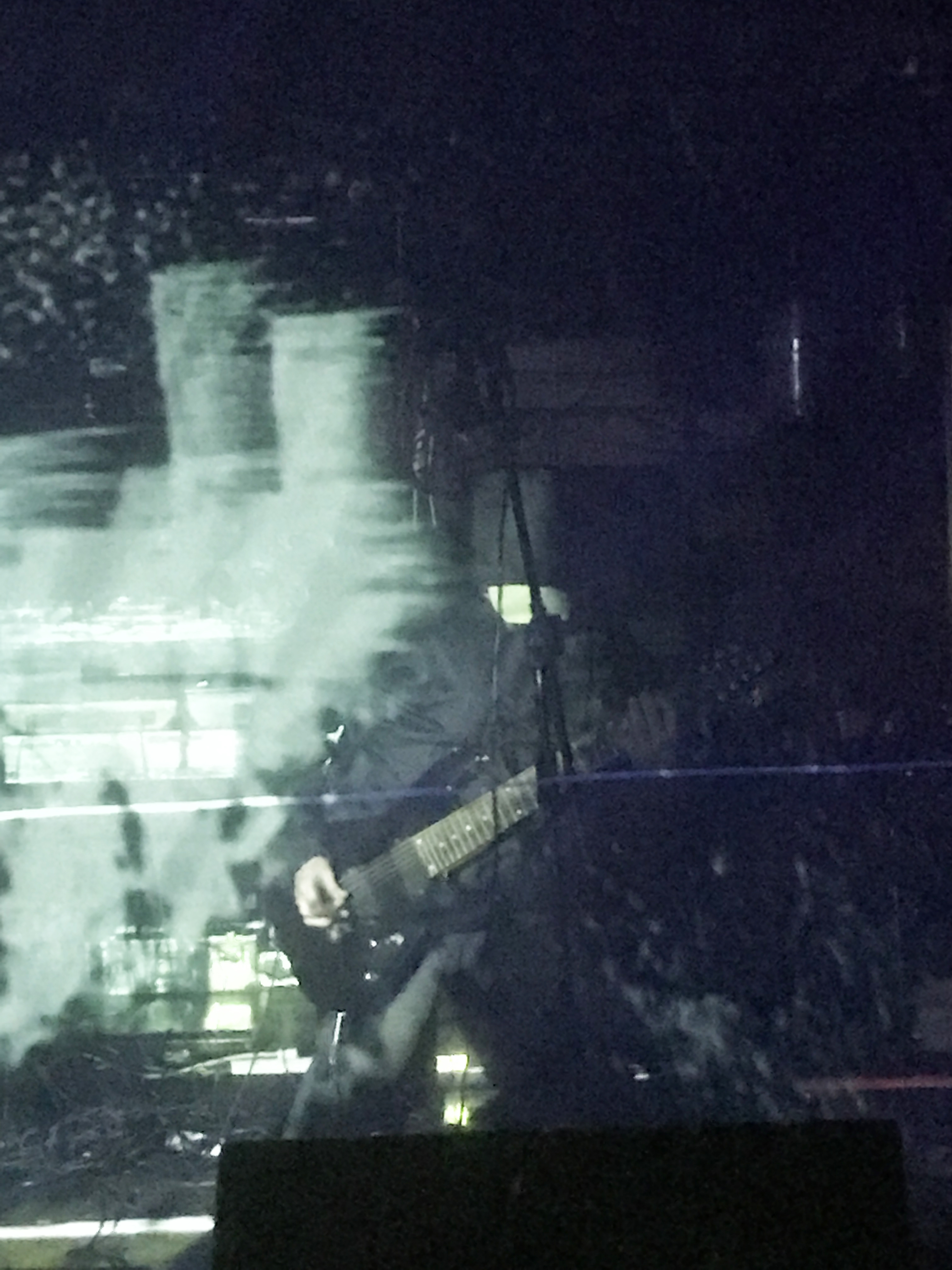 Damian Bennett – I just wanted to be in a band that was all-encompassing, lyrically, at the time. You would go through a lifetime of listening to music, either dedicated such as the music you bought, or incidental like the music in a store, and when it came time to commit to making the statement yourself it was so hard. You’d be there looking at a blank bit of paper. But you start somewhere, and develop something from that. It was really good to start somewhere though and start to amass songs, then a set.
Damian Bennett – I just wanted to be in a band that was all-encompassing, lyrically, at the time. You would go through a lifetime of listening to music, either dedicated such as the music you bought, or incidental like the music in a store, and when it came time to commit to making the statement yourself it was so hard. You’d be there looking at a blank bit of paper. But you start somewhere, and develop something from that. It was really good to start somewhere though and start to amass songs, then a set.
[The] first time in a large studio was really hard though, it was no fun in parts. Now [we’d] approach it very differently especially in terms of talking through what everyone expected from the sessions. Would love to sit down with that initial material and work on it now, that’s for sure.
Andy Swan – I think an early obsession with buying records led quite naturally into trying to make the same sort of sounds myself. It was Throbbing Gristle who opened up that door for me.
The origin of khost goes back to the early days of power electronics and similar genres. I really wanted to create something that touched on those sort of harsher sounds but felt like two granite slabs hanging over your ears. Instead of using pure electronics though I wanted to do it with guitars. The first two khost tracks were deliberately and intentionally a mix of ultra harsh electronics and samples mixed with those granite slab guitar sounds. khost was created as an outlet for the more experimental side of music I wanted to create but couldn’t really express in Iroha, my other band. I was already friends with Damian so when the chance came to work together in khost I jumped at it.
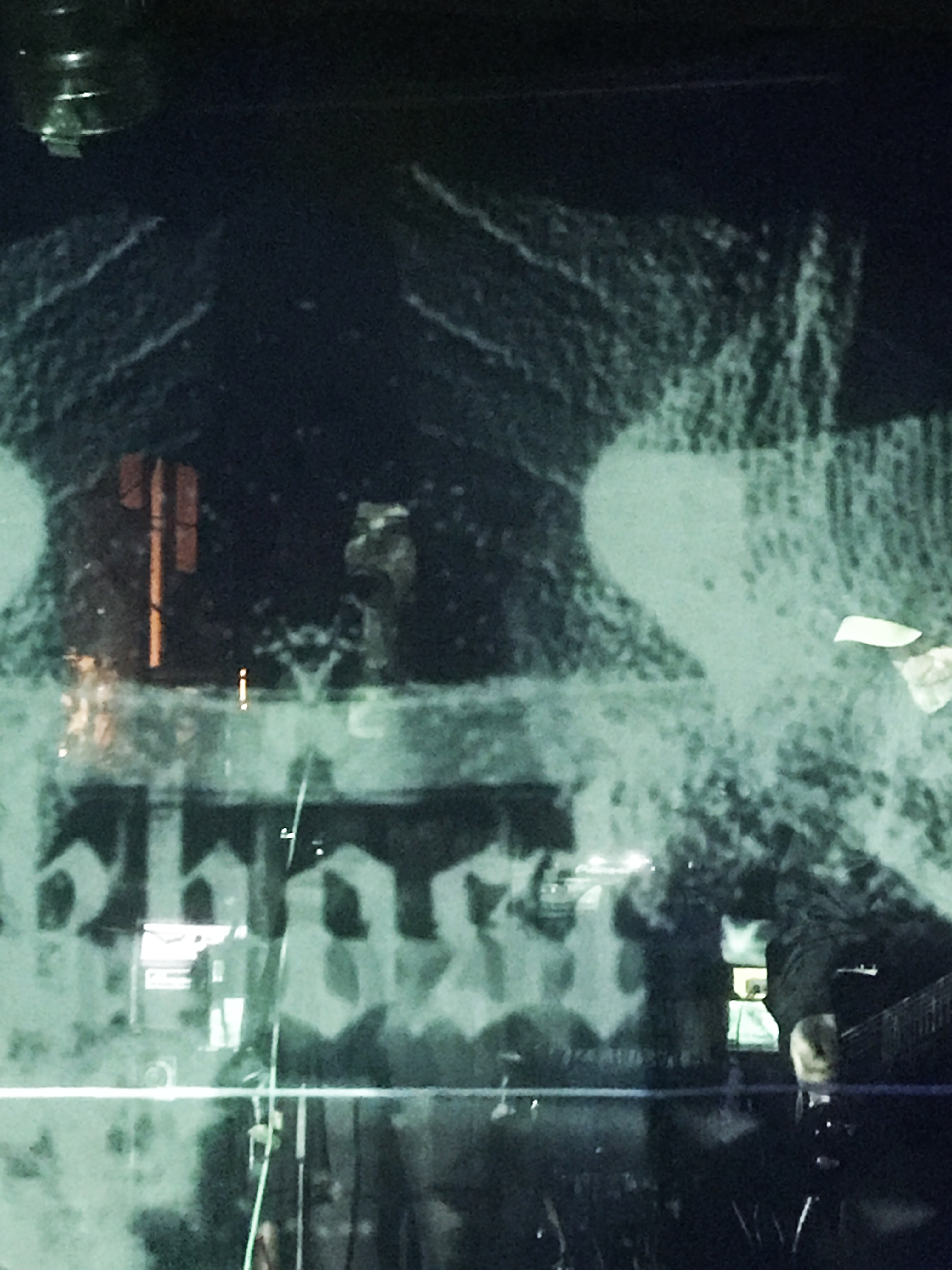 The band is named after a town in Afghanistan. I’d been reading a lot of books on the CIA and the name “Khost” was ever-present in them. It’s such a simple and yet evocative name.
The band is named after a town in Afghanistan. I’d been reading a lot of books on the CIA and the name “Khost” was ever-present in them. It’s such a simple and yet evocative name.
Their first official release, Marked (2014), was self-released on a flash stick, as has been a recent trend with bands working with electronics. It was packaged in a glass vial with a sheet of art, and has yet to see a wider release, and even lacks an online format for potential fans to sample. This is part of the mystery of the band, which has found a way to spread itself digitally, yet remain elusive. khost has a number of tracks, including some live cuts for special performances, that have never seen publication. Within the same year of Marked, after a friend sent two of their tracks to underground tyrant label Cold Spring, they were signed for official releases, which is impressive feat for any new band, let alone in the genres of dark industrial and drone. This led to Copper Lock Hell and Corrosive Shroud, both under Cold Spring in 2015. You can listen to both, in totality, below.
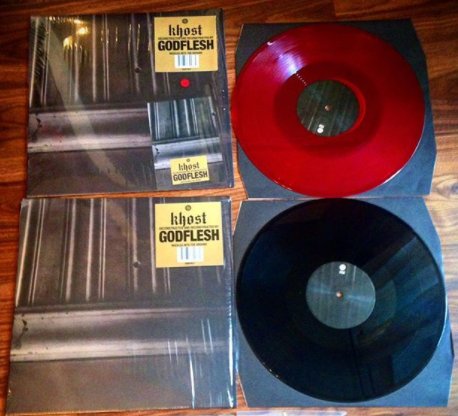 Following this, khost authorized two remix releases of their work. Both have their strong points, but one is far more important musically. After UK-based power electronics master Satori remixed some of the band’s tracks for a self-release called The Modern Prometheus near the end of 2015, 2016 saw the Cold Spring release of Needles into the Ground (full title: khost Deconstructed and Reconstructed by GODFLESH: Needles into the Ground), by GODFLESH. GODFLESH, as you certainly know, has been one of the most influential bands in the metal underground, noted for their early work combined industrial with metal and utilizing inventive riff patterns and electronics. As a child, Selfless (1994) was one of my first random purchases as I sought to learn more about music. So I know that GODFLESH, throughout their own career, remixed their own work, almost an expectation with any bad messing with electronics, with several EPs and compilation appearances. This particular album, however, was different, and to date their only extensive remix release of another band’s work, consisting of three remixes of songs that appeared on Corrosive Shroud, with one new track at the end by khost. It saw release in CD and two LP versions, the rarer, Cold Spring fan exclusive red vinyl shown here. khost’s connection to GODFLESH is easy to explain.
Following this, khost authorized two remix releases of their work. Both have their strong points, but one is far more important musically. After UK-based power electronics master Satori remixed some of the band’s tracks for a self-release called The Modern Prometheus near the end of 2015, 2016 saw the Cold Spring release of Needles into the Ground (full title: khost Deconstructed and Reconstructed by GODFLESH: Needles into the Ground), by GODFLESH. GODFLESH, as you certainly know, has been one of the most influential bands in the metal underground, noted for their early work combined industrial with metal and utilizing inventive riff patterns and electronics. As a child, Selfless (1994) was one of my first random purchases as I sought to learn more about music. So I know that GODFLESH, throughout their own career, remixed their own work, almost an expectation with any bad messing with electronics, with several EPs and compilation appearances. This particular album, however, was different, and to date their only extensive remix release of another band’s work, consisting of three remixes of songs that appeared on Corrosive Shroud, with one new track at the end by khost. It saw release in CD and two LP versions, the rarer, Cold Spring fan exclusive red vinyl shown here. khost’s connection to GODFLESH is easy to explain.
Damian Bennett – Always a really good friendship with them, much live work and loved seeing the various different versions of the band live. Really got the impression with Needles that it was done post-tour, and a lot of the sleep deprivation, anxiety, exhaustion of the touring machine breathed some pretty heavy toxic volatiles [sic] into that recording. It’s a one-off.
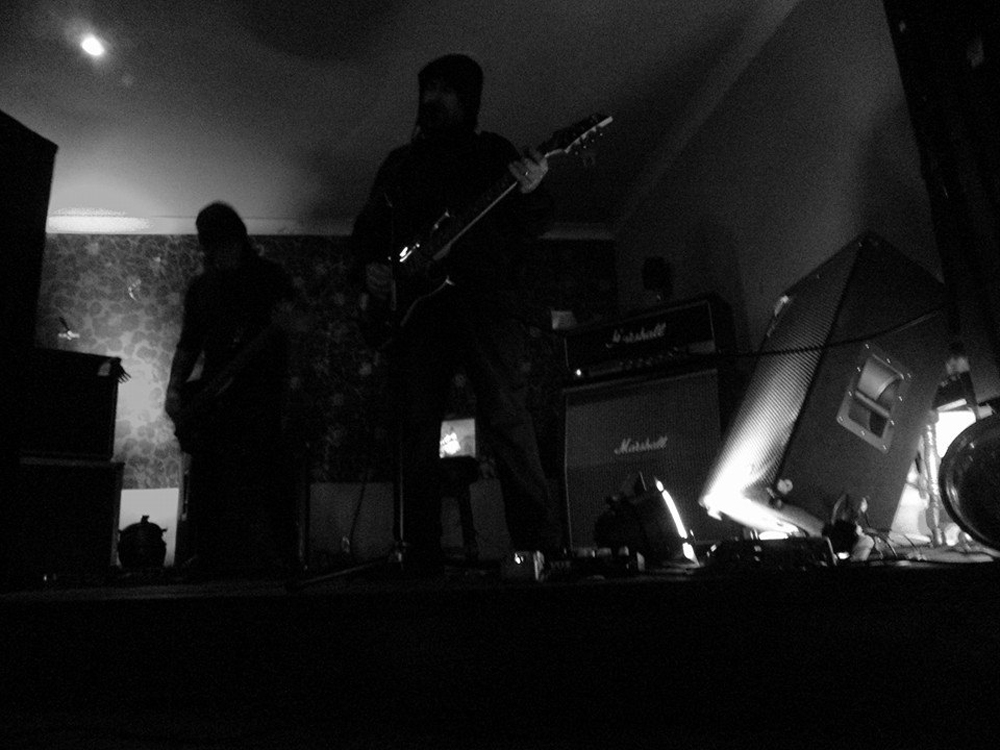 Andy Swan – I’ve known Justin and Benny since we were teenagers. I met Justin when we were around 14 or 15 and we started creating very harsh electronics together in the vein of Whitehouse and Ramleh. We’ve also toured with Godflesh so there’s very much a common thread there. The remix EP is incredibly harsh and intense.
Andy Swan – I’ve known Justin and Benny since we were teenagers. I met Justin when we were around 14 or 15 and we started creating very harsh electronics together in the vein of Whitehouse and Ramleh. We’ve also toured with Godflesh so there’s very much a common thread there. The remix EP is incredibly harsh and intense.
The success of the band is owed partially to Cold Spring, a big name in this type of music, but the album Governance alone is proof as to why this relationship even began. khost creates music that is enthralling, powerful, and emotional, a difficult combination. Cold Spring and their unique sound has led to a rising interest and fascination with the band, who, like any smart band dabbling with electronics, realizes the importance of their live presence, lacking the physical element an average listener expects. To overcome this, they use other musicians, vocalists, and visuals, including performances where they play behind a white veil upon which hypnotic images are projected, leaving the band much like ghosts performing in fog.
Andy Swan – I think it’s hugely important that a label puts its backing into a release when there are so many other platforms out there these days. Having music instantly available has taken out a huge amount of the mystery that used to surround a lot of the scene in years gone by. A grainy black and white photo or a live review might have been the only way to discover new music back then. Having instant access has taken away some of the magic unfortunately. The general reactions to our releases and live shows have been ones of confusion mixed with grim fascination.
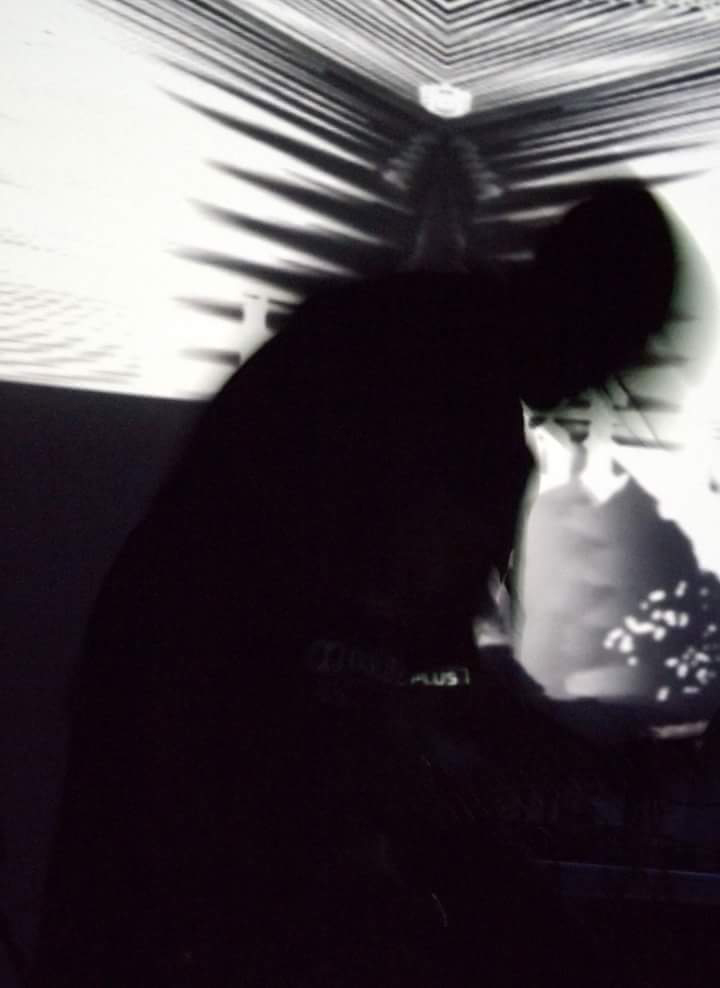 Damian Bennett – khost has always incorporated many elements in order to map out the specific world we inhabit; from the first set there was onstage visuals, sometimes from multiple sources. Projections, extra layers of recordings and ambience, extra live vocals from accomplices such as Syan, and this continues, to such an extent that new layers and instruments are being included as we speak, live. The beats come from many sources, including work from Daniel Buess.
Damian Bennett – khost has always incorporated many elements in order to map out the specific world we inhabit; from the first set there was onstage visuals, sometimes from multiple sources. Projections, extra layers of recordings and ambience, extra live vocals from accomplices such as Syan, and this continues, to such an extent that new layers and instruments are being included as we speak, live. The beats come from many sources, including work from Daniel Buess.
Andy Swan – It sounds a little pretentious but the live shows have an edge of performance art about them.
Though reserved, khost clearly realizes the importance of their live image, which includes limited performances and songs never released, but which have been only performed in-person. One of these performances has seen the band’s most limited release, a single cassette that even they do not possess a copy of. As would be expected, they have already toured the United Kingdom, with plans on expanding into Europe, and possibly the United States in 2018, which will hopefully include the visual projections used in the UK, the bulk of which were done by visual artist Dan Conway, who’s worked with Wrangler, among others. Until then, foreign viewers can only experience the band through their own videos, or collections of live videos taken by audience members, many of which have been collected by khost themselves. You can see one of Conway’s videos below. All of what you read here is a picture into the experience that is this band, which will certainly reach further as their name continues to be recognized.
Written by Stanley Stepanic

